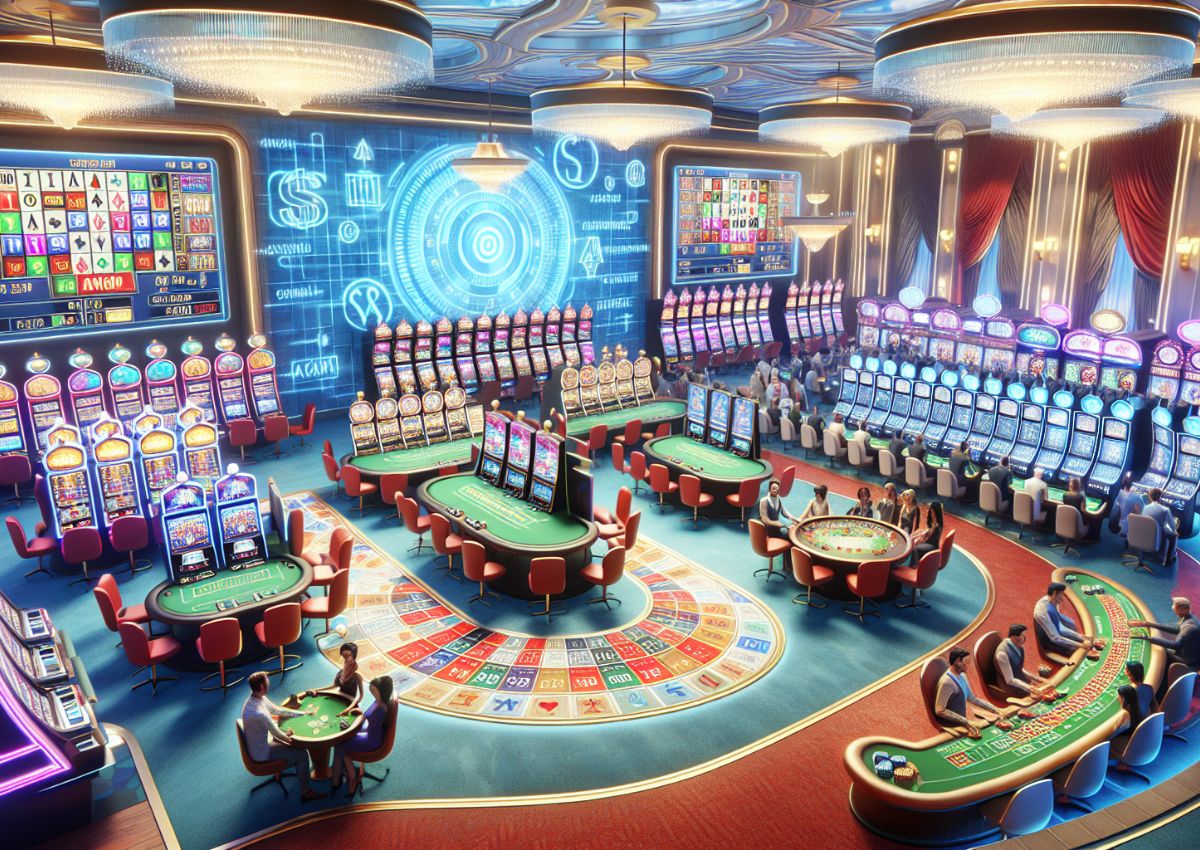
The world of casino games has experienced a remarkable evolution in past times, propelled by tech progress and shifting consumer tastes. As an increasing number of players shift to digital platforms for leisure, traditional gambling activities are being modified to meet the demands of a tech-savvy audience. This transition not only includes the transition from brick-and-mortar to digital spaces but also covers the evolution of gameplay mechanics and player interaction techniques.
In this emerging virtual age, video game developers are leveraging innovative techniques to develop immersive environments that appeal with a diverse range of gamers. From online fruit games with breathtaking visuals to interactive table games that mimic the feel of a real-life casino, the modification process is redefining how we perceive and enjoy gambling activities. As we navigate this captivating journey, it is clear that the prospect of gaming lies in the seamless integration of advanced technology with the everlasting appeal of luck and tactics.
A Development of Casino Entertainment
Gambling games have experienced significant transformations throughout the years, demonstrating transformations in tech, society, and gamer choices. In early eras, basic games of luck were played using rudimentary materials such as rocks and animal remains. As civilizations progressed, so did the sophistication of these activities. The emergence of playing cards in the medieval period marked a pivotal moment, culminating to the creation of well-known games like Texas Hold’em and 21, which are still played in the present. Over the years, the physical layout of casinos has also evolved, shifting from tiny local locations to large, elaborate establishments.
The twentieth century ushered a transformation in the realm of gambling entertainment with the arrival of digital gaming. Slot machines emerged as a favored draw, fascinating gamblers with their vibrant lights and audio effects. This era also saw the rise of gambling hotels, which integrated luxury accommodations with a wide variety of casino options. The introduction of video gaming further broadened the field, allowing for more intricate designs and gaming mechanics. These developments not only attracted a wider audience but also changed the way gambling entertainment were played.
With the rise of the web in the final 90s and early 2000s, casino entertainment moved into a new digital phase. Online casinos emerged, providing participants with the convenience of playing from their own spaces. This transition required game developers to reconsider traditional mechanics and modify them for an engaging digital environment. Today, advancements in technology, including smartphone gaming and VR, continue to shape the evolution of casino games, creating immersive experiences that engage players like not before.
Primary Attributes of Digital Casino Games
Virtual gambling experiences have transformed the way gamers engage with the gambling experience by providing captivating experiences that echo the excitement of traditional casinos. One of the most significant features is the use of premium graphics and animations, which create a aesthetically striking environment. Designers focus on delivering authentic themes and enthralling storylines that draw players into the game, boosting their overall experience. 32win The capability to provide 3D visuals and impressive sound effects means that players can enjoy a dynamic atmosphere akin to what they would experience on a casino floor.
Another essential aspect of online gambling games is the accessibility they offer to players around the world. Web-based services enable individuals to play their favorite games from the comfort of their own homes or on the go through smartphones and tablets. This convenience is accompanied by a broad range of gaming choices, including slots, card games, and live casino games. Players no longer need to commute to a physical location to enjoy their preferred betting experiences, allowing a broader audience to engage with gaming.
Lastly, virtual gaming experiences frequently include cutting-edge features such as interactive gameplay and community features. Many games now allow players to go head-to-head against one another, participate in tournaments, or even broadcast their achievements on social media. This change encourages a sense of community among players while fostering friendly competition. Additionally, features like customizable avatars and in-game chat options improve social interaction, making the digital gaming experience even more enjoyable for all users.
What Lies Ahead of Online Gaming
As technology continues to evolve, the landscape of online gaming is preparing for significant transformation. Virtual and enhanced reality are creating a buzz, offering players an immersive experience that mirrors the thrill of being in a brick-and-mortar casino. These advancements create opportunities for creators to introduce unique game formats and interactive features, reshaping how players engage with their favorite casino games.
Moreover, the integration of smart technology is enhancing user experiences and personalizing gameplay. AI can examine player behavior, suggest tailored game options, and improve customer support through virtual agents. This customization not only retains players occupied but also helps build a dedicated community around certain casino platforms, setting them for success in a competitive market.
Finally, the rise of mobile gaming is another vital factor shaping the future of online gaming. With an ever-growing number of players playing casino games on their smartphones, game designers are focusing on optimizing their platforms for mobile use. This change allows players to experience casino games wherever they are, paving the way for a more flexible and approachable gaming environment that caters to a wider audience.
